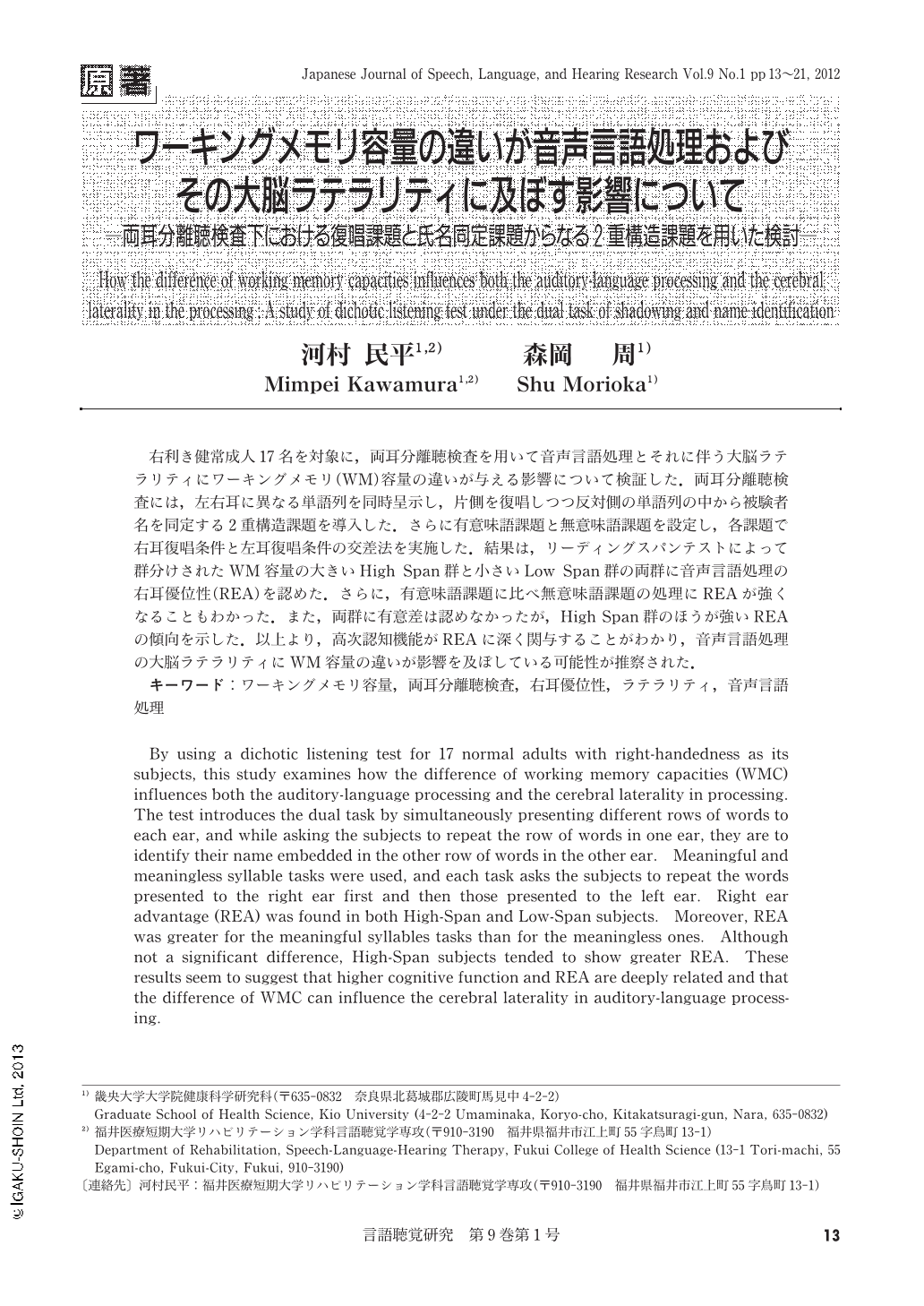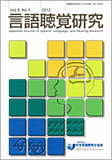Japanese
English
- 有料閲覧
- Abstract 文献概要
- 1ページ目 Look Inside
- 参考文献 Reference
右利き健常成人17名を対象に,両耳分離聴検査を用いて音声言語処理とそれに伴う大脳ラテラリティにワーキングメモリ(WM)容量の違いが与える影響について検証した.両耳分離聴検査には,左右耳に異なる単語列を同時呈示し,片側を復唱しつつ反対側の単語列の中から被験者名を同定する2重構造課題を導入した.さらに有意味語課題と無意味語課題を設定し,各課題で右耳復唱条件と左耳復唱条件の交差法を実施した.結果は,リーディングスパンテストによって群分けされたWM容量の大きいHigh Span群と小さいLow Span群の両群に音声言語処理の右耳優位性(REA)を認めた.さらに,有意味語課題に比べ無意味語課題の処理にREAが強くなることもわかった.また,両群に有意差は認めなかったが,High Span群のほうが強いREAの傾向を示した.以上より,高次認知機能がREAに深く関与することがわかり,音声言語処理の大脳ラテラリティにWM容量の違いが影響を及ぼしている可能性が推察された.
By using a dichotic listening test for 17 normal adults with right-handedness as its subjects, this study examines how the difference of working memory capacities(WMC) influences both the auditory-language processing and the cerebral laterality in processing. The test introduces the dual task by simultaneously presenting different rows of words to each ear, and while asking the subjects to repeat the row of words in one ear, they are to identify their name embedded in the other row of words in the other ear. Meaningful and meaningless syllable tasks were used, and each task asks the subjects to repeat the words presented to the right ear first and then those presented to the left ear. Right ear advantage(REA) was found in both High-Span and Low-Span subjects. Moreover, REA was greater for the meaningful syllables tasks than for the meaningless ones. Although not a significant difference, High-Span subjects tended to show greater REA. These results seem to suggest that higher cognitive function and REA are deeply related and that the difference of WMC can influence the cerebral laterality in auditory-language processing.

Copyright © 2012, Japanese Association of Speech-Language-Hearing Therapists. All rights reserved.


